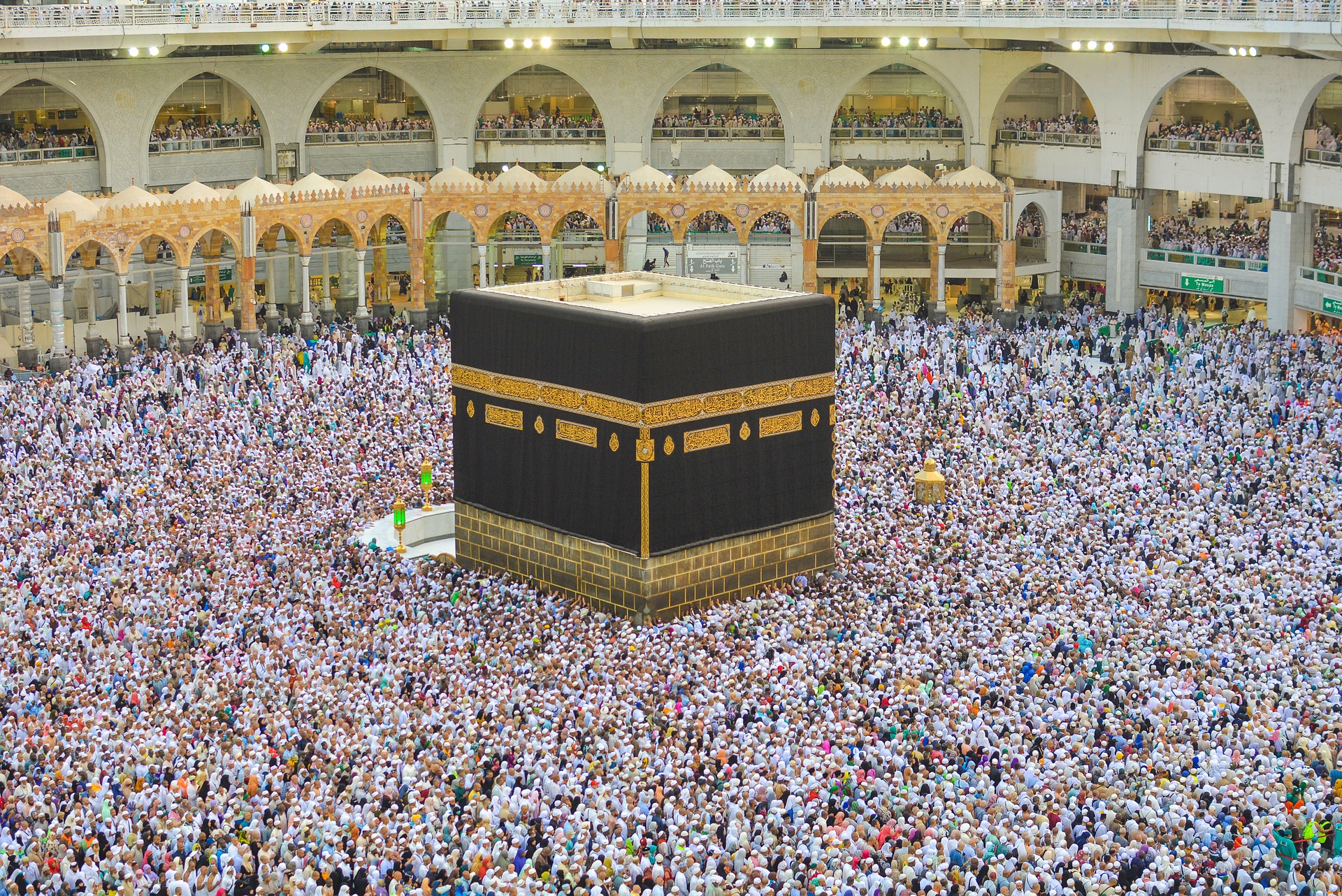UPDATE: Air India has backtracked. See statement below.
With reference to instructions regarding non carriage of Zamzam cans, on AI966 and AI964, we wish to clarify that passengers are allowed to carry Zamzam cans within their permissible baggage allowance.
Please accept our apologies for the inconvenience caused.
#FlyAI : With reference to instructions regarding non carriage of Zamzam cans, on AI966 and AI964, we wish to clarify that passengers are allowed to carry Zamzam cans within their permissible baggage allowance.
Please accept our apologies for the inconvenience caused.— Air India (@airindiain) July 9, 2019
Blaming aircraft weight restrictions, Air India is banning holy water from Mecca onboard its flights from Jeddah. Passengers are outraged.
First some history, which makes this story interesting. According to Islamic legend, Hagar, the wife of Abraham, ran between two mountains, the Safa and Marwah, in desperate search of water for her son Ishmael. Suddenly, a spring of water erupted at the feet of Ishmael. People settled around the spring, in modern-day Mecca, which was called zamzam.”Zamzam” literally means “stop flowing”, which is what Hagar uttered as she tried to contain the surging spring.
Today, the ancient well sits in the center of Mecca. Islamic pilgrims in Mecca for Haj or Umrah drink from the spring and fill up bottles to take to loved ones. The water is rumored to have healing power…
Air India: No Zamzam
In a memo circulated to travel agents, Air India noted that no holy water would be allowed on its flights from Jeddah.
Due to change of aircraft and limitation of seats, zamzam cans will not be allowed on our flights nos. AI966 (Jeddah/Hyderabad/Mumbai) and AI964 (Jeddah/Kochi).
An Air India source told the Times of India:
Zamzam has been banned on flights operated by Airbus aircraft due to payload restrictions. We are forced to reduce the weight each passenger is allowed to carry.
As you might imagine, passengers are not taking kindly to this news. Returning from Mecca with zamzam is an integral part of the process.
CONCLUSION
I suppose it is a good thing Saudi Arabia does not have similar liquid bans as in the western world. Otherwise, Air India would have a convenient scapegoat. My prediction is that this ban will be ignored or directly repealed.
Say that 200 passengers each take aboard a 5L container. That’s about 5kg each, so an extra 1,000kg. Certainly that counts for something, but why single out zamzam? Why not just reduce the checked baggage limit? Or count any item, including a zamzam can, as the only permitted carry-on?
To my Islamic readers, how important is to leave Mecca/Jeddah with zamzam?





It didn’t take too long for Air India to backtrack: https://thecognate.com/after-criticism-air-india-apologises-for-zamzam-ban-says-hajj-pilgrims-can-carry-water-within-baggage-limit/
Correct, though it occurred after I wrote the story. I will update the story later today.
So
water = ok
water + magic = banned?
As a Muslim who has been to Mecca, bringing back Zam Zam is the most important “souvenir” to bring back from a trip there. I can’t think of any Muslim ever that hasn’t brought a 5L can back (that is what the ministry allows at the airport to take back – 1 5L can per passenger). If AI hadn’t reversed their decision, you could be sure they would have empty flights on that route because it is THAT important – it isn’t magic per se, but just a very highly regarded religious object. Considering the annual Hajj (major pilgrimage) season that is about to start in Mecca, there will be 200,000 Muslims from India traveling to/fro Jeddah in August (as per the quota in place for India). Alternative nonstop flights are with IndiGo, SpiceJet and SaudiA, so really the only loser here would have been Air India.
The holy water is carried in plastic containers that are then checked in, not transported as carry-on.
it is not mandatory to bring zam zam on the way back, its just people prefer to bring it in order to share with their friends and loved ones.
Wow. I appreciate you got the Zamzam story right. It seems like the major news outlets rarely manage that. So that’s impressive for a travel blog.
There is nothing in the Qur’an or hadith about the importance of taking zamzam water. Of course there’s nothing in the Bible about holy water either. In both cases, it has just acquired significance as a matter of tradition.